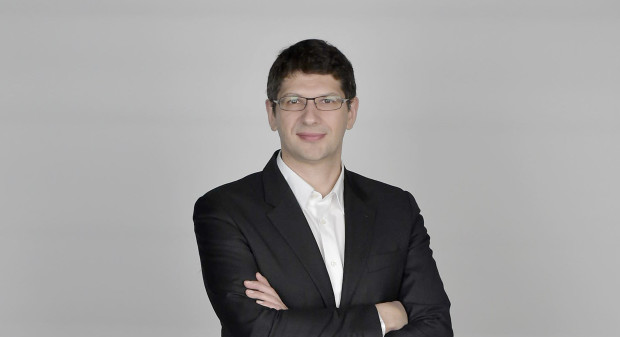Chaque vendredi, dans sa revue de presse, Maddyness vous propose une sélection d’articles qui ont retenu l’attention de la rédaction.
Profession cybercombattant : le quotidien d'un soldat des réseaux
«Un génie, s'il est assez motivé, peut pénétrer quasiment n'importe quel système informatique avec assez de temps. C'est la hantise dans notre milieu.» Après son café matinal, une fois installé à son poste, Claude* endosse son rôle de cybercombattant. Il protège les données confidentielles de la police, de l'armée de terre et d'institutions publiques dont il ne peut révéler le nom. En raison d'une clause de confidentialité qu'il a signée à son entrée dans la maison, il n'a normalement pas le droit de s'exprimer. Mi-novembre, il a vu le nombre d'attaques monter en flèche. Une vague de tentatives d'intrusion dans les bases de données les plus secrètes de l'État a submergé son équipe. 4.500 par heure, contre 400 en temps normal. «Ça s'affolait dans les couloirs». Lire la suite sur Le Figaro

Busting the Myths About A.I. Invading Our Lives
A good thing to try is the digital assistant on the latest Google Pixel phone because it shows both the power of artificial intelligence and the limitations. It is very good at recognizing what you say, and it responds in a voice that sounds more human than most computer noises we are used to. Researchers at a Google A.I. lab in London built a system that learns to speak by analyzing recordings of human voices and identifying the patterns that make them human. But it still doesn’t sound exactly like a human. And though the Google Assistant — like other digital assistants from the likes of Amazon and Apple — does a decent job of responding to some questions and commands, it is a long way from not just recognizing but actually understanding conversational speech. Lire la suite sur le New York Times

La neutralité du Net expliquée avec des camions
Les Etats-Unis ont abrogé jeudi dernier ce principe qui régit Internet depuis ses débuts et qui veut que tous les contenus y soient traités de la même manière, sans discrimination. Le Monde explique en une infographie ce que cela change.

The new cold war: how our focus on Russia obscures social media's real threat
Washington used to worship Silicon Valley. Few things made politicians’ hearts beat faster than the bipartisan love for big tech. Silicon Valley was building the future. Government’s role was to offer compliments and get out of the way. Recently, however, the mood has shifted. Both sides of the political divide seem to be awakening to the possibility that letting the tech industry do whatever it wants hasn’t produced the best of all possible worlds. “I have found a flaw,” Alan Greenspan famously said in 2008 of his free-market worldview, as the global financial system imploded. A similar discovery may be dawning on our political class when it comes to its hands-off approach to Silicon Valley. Lire la suite dans The Guardian

David Monteau quitte la French Tech : "Nous n’avons pas créé un gros machin public, mais un écosystème"
David Monteau, c’est un peu l’homme de l’ombre de la French Tech. A l’été 2013, il est appelé par l’équipe de Fleur Pellerin pour piloter la partie opérationnelle du projet, encore baptisé "Quartier Numérique". "A l’époque, Fleur Pellerin préparait toute une action autour du numérique et de l’innovation", explique David Monteau. Avec une idée sous-jacente : remettre les start-up au cœur de l’innovation. "J’étais alors directeur du transfert technologique et de la création d’entreprises à l’Inria. J’étais en contact avec les professionnels de l’innovation et j’avais pas mal d’expérience terrain", se souvient David Monteau. "J’avais une vision sur le fonctionnement de l’innovation et la manière dont le sujet était abordé en France par les pouvoirs publics… Tous les efforts étaient tournés autour de la recherche et développement. Or, l’innovation est avant tout un processus entrepreneurial". Cette expérience aurait convaincu le secrétariat au numérique du moment. "Il y avait un chaînon manquant : la startup", explique-t-il. C’est ainsi que la French Tech s’est construite, autour d’une conviction : "Le moteur de l’innovation, ce sont les startups". Lire la suite sur L'Usine Digitale

Estonia planning its own cryptocurrency, called ‘estcoin’, in bid to become global ICO hub
When it comes to reinventing government for the digital age, Estonia seems to be already living in the future. But now the country is on the verge of taking a radical new step by becoming the first nation to launch its own cryptocurrency. In a blog post today, Kaspar Korjus, managing director of Estonia’s e-residency program, unveiled details of the country’s plans for estcoin. Korjus was careful to make the distinction that these are tokens, not technically a currency, because that would violate the country’s agreement to use the euro as its official money. Still, the estcoins may go on sale in 2018 to raise money for the country’s e-residency program. But just as important, that money and the expansion of the e-residency services will include efforts to make Estonia a kind of haven for people looking to hold initial coin offerings. Korjus believes Estonia can put in place a clearer regulatory framework that will remove the uncertainty that ICOs face in other jurisdictions. Lire la suite sur VentureBeat






